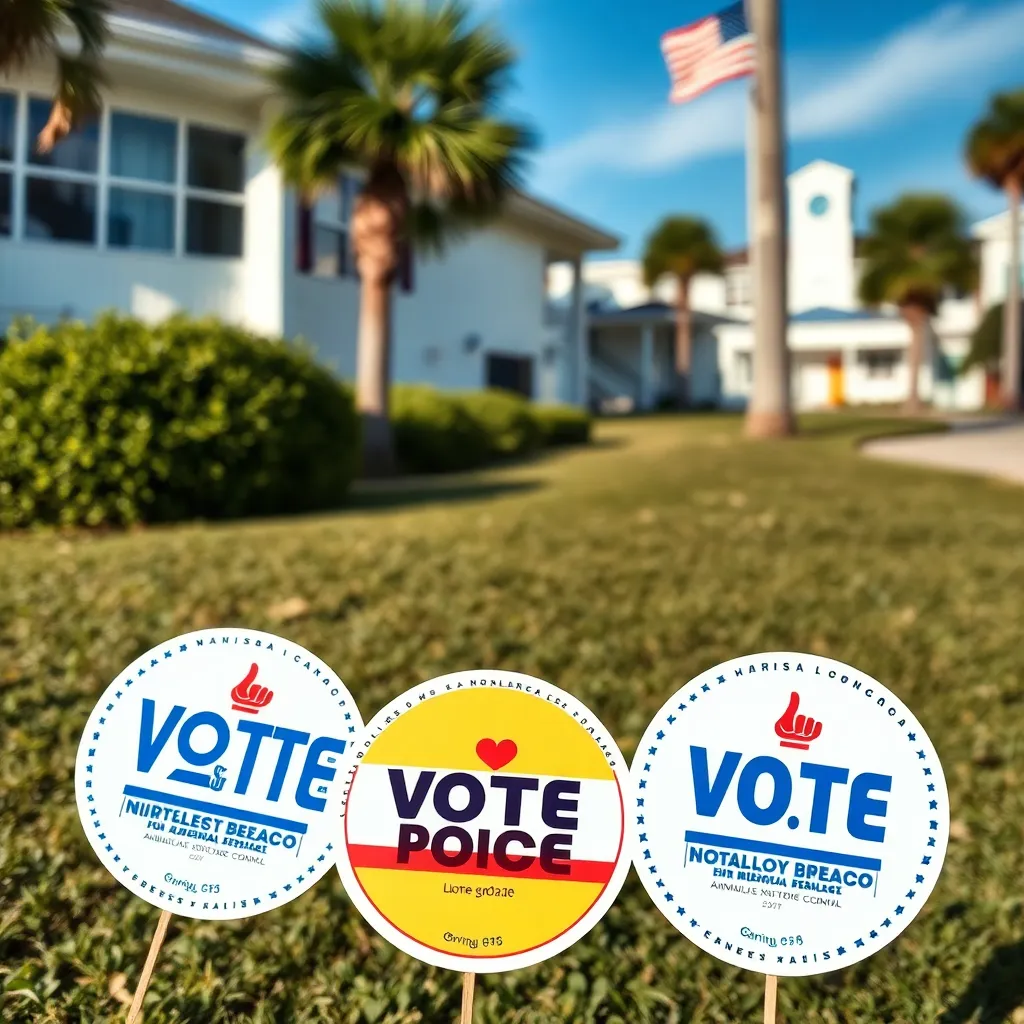

Myrtle Beach Community Divided Over Election Stickers in Spanish Language
Want to target the right audience? Sponsor our site and choose your specific industry to connect with a relevant audience.
Prominent brand mentions across targeted, industry-focused articles
High-visibility placements that speak directly to an engaged local audience
Guaranteed coverage that maximizes exposure and reinforces your brand presence
Interested in seeing what sponsored content looks like on our platform?
May’s Roofing & Contracting
Forwal Construction
NSC Clips
Real Internet Sales
Suited
Florida4Golf
Click the button below to sponsor our articles:
Sponsor Our ArticlesIn Myrtle Beach, the buzz around town isn’t just about the waves and sand – it’s about voting and stickers! Recently, Horry County Councilman Al Allen stirred the pot by publicly expressing his disapproval of the new Spanish-language “I Voted” stickers introduced during this election season. His comments, shared via a Facebook post, caught the attention of many local residents.
In his post, Allen stated he was “offended” by the presence of these stickers, saying, “I can understand a mistake being made in another state, but not here.” He went on to apologize to constituents who may have felt the same way, closing with the phrase “America First Always” and a little American flag emoji for flair.
This controversy has sparked discussions in our community, as many folks are questioning the rationale behind introducing Spanish-language stickers. It’s important to note that while the U.S. doesn’t have an official language, some states must provide voting materials in languages other than English if there are enough speakers of that language – specifically, at least 10,000 people. This requirement is part of the Voting Rights Act and affects 330 jurisdictions across 27 states. But, guess what? South Carolina isn’t on that list, and yet these Spanish stickers are becoming a hot topic!
Here’s the scoop: the South Carolina Election Commission rolled out these Spanish-language stickers to help engage their Spanish-speaking citizens better. A spokesperson for the commission clarified that counties were instructed during training to allow voters to choose whether they wanted the sticker in English or Spanish. It turns out, Spanish-language stickers make up a little over one-fifth of all those distributed.
According to the 2020 Census, there are approximately 352,000 Hispanic or Latino individuals living in South Carolina, with a significant portion residing right here in Horry County. This upswing in demographics is likely why the Election Commission decided to add Spanish-language options – aiming to be more inclusive and reach out to everyone in our community.
As you can imagine, responses to Councilman Allen’s post have been mixed. Some folks support his view, believing that voter engagement should stick to English. Others, however, recognize the importance of making all residents feel represented in the voting process. It’s a bit of a balancing act!
Many residents agree that our community is becoming increasingly diverse, and they appreciate efforts to reach out to all potential voters, even if that means having different language options available. After all, the more voices we hear, the stronger our democracy becomes!
As we roll into one of the most critical election periods, it’s essential for everyone in Myrtle Beach to stay informed about voting rights and options, whether they prefer to speak English or Spanish. It’s all about getting everyone involved and making sure that every voice is heard! After all, every vote counts, and it’s our civic duty to participate in this important process.
In conclusion, while the debate rages on, one thing is for sure: Myrtle Beach is full of passionate folks who care about their community. We’ll be watching to see how this situation unfolds and how our local leadership continues to navigate the waters of representation and voter inclusion.
News Summary The Florida women’s golf team achieved an impressive second place finish at the…
News Summary Florida is home to a staggering 1.3 million alligators, as revealed by the…
News Summary While enjoying a round of golf at the Stonegate Oaks course, a couple…
News Summary The Brittanee Drexel case, involving the disappearance of a young girl during a…
News Summary As Tropical Storm Helene approaches, Charleston residents are bracing for impacts including strong…
News Summary A remarkable incident occurred in Beaufort County, South Carolina, where 43 young rhesus…